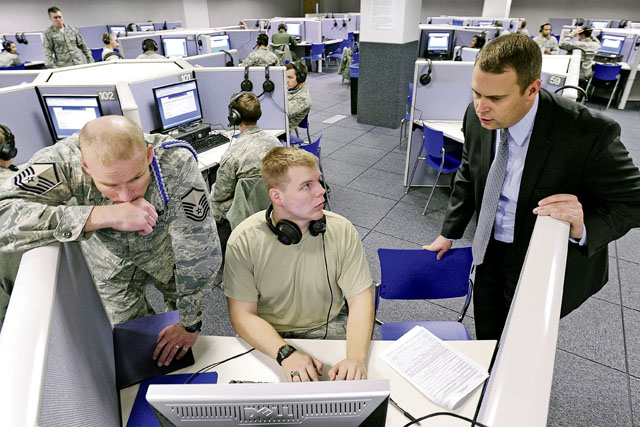
Consider this scenario: An Airman received a DUI in July 2016, and after receiving an Article 15 Non-Judicial Punishment, he thought that it was over and done. However, because it was not reported to the security office, it came back to haunt him. In February 2017, he moved on to a new assignment. In that same month, his name was flagged in an automated database and the DUI was reported. Although his clearance was not immediately affected, he arrived at his new base with an open incident report and was left scrambling to gather the documents needed to close it. Luckily, there was a happy ending, but you can see the potential impacts to mission readiness. Just think, what if that was you, but were deploying or going TDY. Would you be able to easily provide the necessary paperwork to resolve the concerns?
Now think about this scenario. An Airman began falling severely behind on her financial obligations and ultimately had to short sell her house in Florida. She reported her financial situation to her First Sergeant and the Information Protection (IP) office immediately. The incident was formally documented, and as soon as all actions were completed and she was able to get financially stable, it was closed favorably within a few months. She no longer has to worry about this incident coming back to haunt her at an inopportune time.
Historically, if an individual had an active security clearance, they provided documented updates on their personal life on either a five or ten year cycle. Since the inception of the Continuous Evaluation Program (CEP) in 2016, military, civilians, and contractors who have security clearances have been required to immediately self-identify issues or changes in their personal life. The CEP ensures actions or behaviors that affect a person’s trustworthiness, reliability, and loyalty, are reported immediately to the DoD Consolidated Adjudication Facility (DoDCAF) for assessment and mitigation. The DoDCAF is the agency that grants your security clearance.
Reportable activities/changes include, but are not limited to:
- Foreign contacts: Continuing association with a known foreign national that involves bonds of affection, personal or intimate obligations, or any other contact that involves the exchange or personal information.
- Financial problems: Filing for bankruptcy, garnishing of wages, eviction for failure to pay rent, inability to meet all your financial obligations, etc.
- Arrests: Any arrest, regardless if charges were filed, if dismissed or reduced; includes theft, fraud, DUI, domestic violence or abuse, and any other involvement with the legal system such as being sued.
- Alcohol/drug involvement: Alcohol abuse, use, possession, or acquisition of illegal substances including marijuana; misuse of prescribed medication, or inappropriate acquisition of prescription and non-prescription medication.
- Loss or compromise of information: Confidential, Secret, or Top Secret Information lost due to negligence.
Other areas of concern are: allegiance to the United States, criminal sexual behavior, personal conduct, psychological conditions, outside activities, and the use of Information Technology Systems.
Jennifer May, 86th Airlift Wing Information Protection Office chief, said it’s important to understand what does and doesn’t happen as a result of reporting activities or changes.
“Reporting these issues does not automatically mean suspension, nor does your command have the authority to adjudicate locally,” said May. “Self-reporting at the soonest opportunity demonstrates integrity and honesty, which is definitely in the member’s favor.”
While this program focuses on upward reporting for individuals, there is also an automated downward reporting aspect. On the automated side of the CEP, social security numbers are randomly vetted through numerous databases to identify potential concerns, such as credit issues and court records. These reports are filtered downward from the DoD CE Validation Cell (CEVC) to the appropriate security office for action. Often, identified issues are not recent, and can cause a lot of work for the member if supporting documentation is not readily available.
“As you move through life and your career, things can change, and that’s okay,” explained Erin Benson, 86th Airlift Wing personnel security specialist. “What you need to remember is that you’ve been entrusted with protecting National security, and because of that, it is your job to report certain life events through your leadership or to our office.”
Additional information on the reporting process and CEP can be found on the 86 AW Information Protection SharePoint site. For further information on the CEP or reporting requirements, please contact the 86 AW Information Protection Office at 480-6203/4384 or your local leadership. For personnel outside the Air Force, contact your local security office for assistance.


